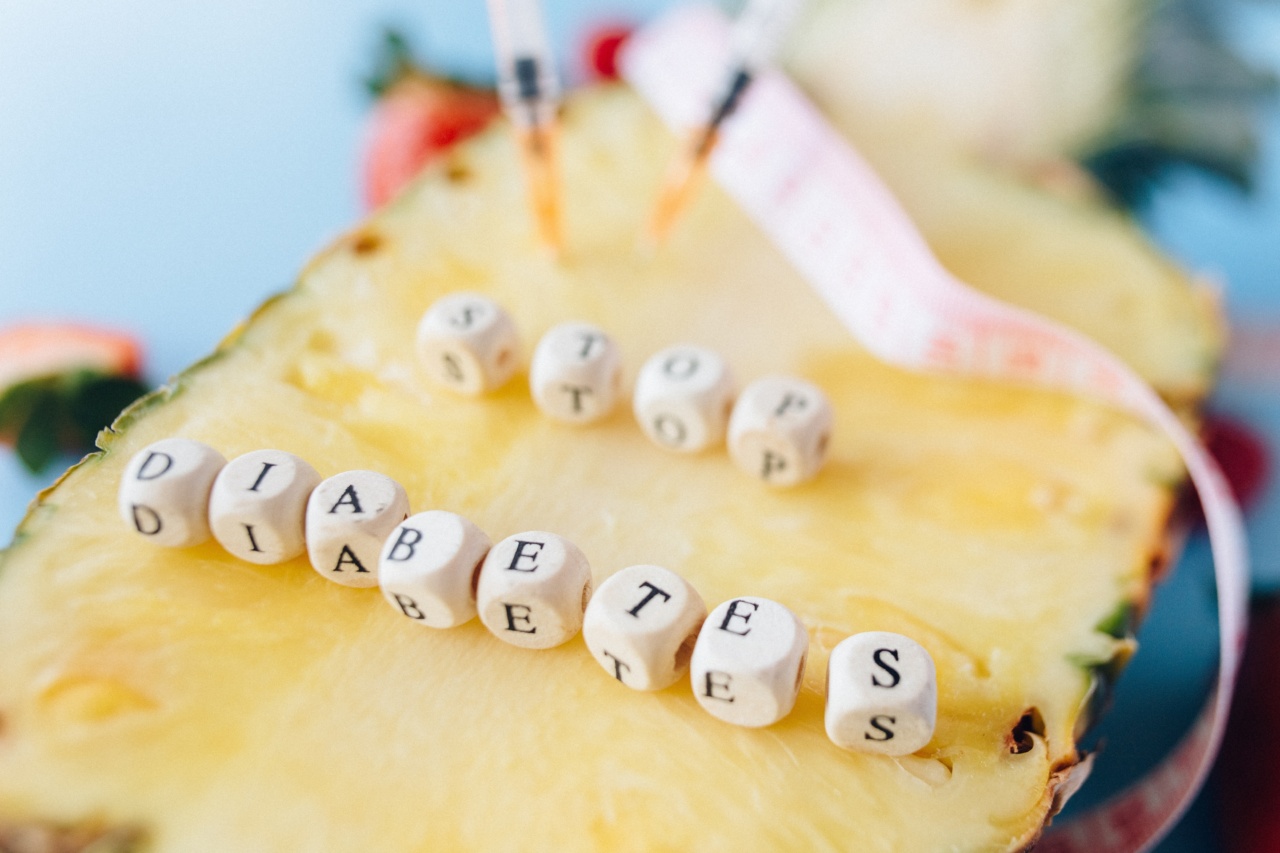Diabetes is a chronic health condition that affects millions of people worldwide. This metabolic disease occurs when the body cannot produce or use insulin, a hormone that regulates blood sugar levels.
Uncontrolled high blood sugar can lead to severe health complications such as nerve damage, blindness, kidney failure, and heart disease.
However, the good news is that diabetes can be managed and controlled with proper care, lifestyle changes, and medication.
If you have diabetes, or someone in your family does, it’s essential to take control of your health, learn about the disease, and follow a comprehensive treatment plan. In this article, we will discuss how to manage diabetes and live a healthy, active life.
Types of Diabetes
There are three main types of diabetes:.
Type 1 Diabetes
Type 1 diabetes, also known as insulin-dependent diabetes, is an autoimmune disease that occurs when the body’s immune system attacks the insulin-producing cells in the pancreas.
As a result, the body cannot produce insulin, and blood sugar levels rise, leading to hyperglycemia. People with type 1 diabetes need to take insulin injections or use an insulin pump to survive, as they cannot produce insulin on their own.
Type 2 Diabetes
Type 2 diabetes is the most common form of diabetes. It occurs when the body becomes resistant to insulin or when the pancreas cannot produce enough insulin to meet the body’s needs.
Type 2 diabetes is also associated with lifestyle factors such as obesity, poor diet, and lack of physical activity. It can be managed with medication, diet, and exercise, but in severe cases, insulin therapy may be required.
Gestational Diabetes
Gestational diabetes is a type of diabetes that occurs during pregnancy. It affects approximately 7% of pregnant women and usually goes away after delivery.
Women who have had gestational diabetes are at higher risk of developing type 2 diabetes later in life.
Symptoms of Diabetes
The symptoms of diabetes vary depending on the type of diabetes and the severity of the disease. However, some common symptoms include:.
- Frequent urination
- Excessive thirst
- Extreme hunger
- Unexplained weight loss
- Fatigue
- Blurred vision
- Cuts or sores that heal slowly
- Tingling or numbness in the hands or feet
- Recurrent infections such as yeast infections or UTIs
If you experience any of these symptoms, it’s essential to get tested for diabetes. Early detection and treatment can prevent or delay the onset of complications.
Diagnosis of Diabetes
The diagnosis of diabetes is based on several tests that measure blood sugar levels and insulin levels in the body. The most common tests are:.
- Fasting Plasma Glucose (FPG) Test: measures blood sugar levels after an overnight fast.
- Oral Glucose Tolerance Test (OGTT): measures blood sugar levels before and two hours after drinking a glucose-rich beverage.
- Hemoglobin A1C (HbA1c) Test: measures the average blood sugar levels over the past 2-3 months.
If you have abnormal test results, your doctor may order additional tests or refer you to an endocrinologist, a specialist in diabetes care.
Treatment of Diabetes
The goal of diabetes treatment is to maintain blood sugar levels within a target range and prevent or delay the onset of complications. Treatment options depend on the type and severity of diabetes and may include:.
Lifestyle Changes
Diet and exercise are essential components of diabetes management. A healthy diet should include whole grains, fruits, vegetables, lean protein, and healthy fats. Avoid processed foods, sugary drinks, and snacks, and limit your alcohol intake.
Regular physical activity can help control blood sugar levels, reduce body weight, and improve insulin sensitivity. Aim for at least 150 minutes of moderate-intensity aerobic exercise per week, such as brisk walking, cycling, or swimming.
Medication
Some people with diabetes may need medication to control their blood sugar levels. Common medications include:.
- Metformin: a drug that improves insulin sensitivity and reduces glucose production in the liver.
- Sulfonylureas: drugs that stimulate insulin secretion in the pancreas.
- DPP-4 inhibitors: drugs that increase insulin production and reduce glucose production in the liver.
- GLP-1 receptor agonists: drugs that stimulate insulin secretion and slow down stomach emptying.
- Insulin: a hormone that lowers blood sugar levels and can be taken by injection or pump.
Your doctor will prescribe the most appropriate medication for you based on your individual needs and preferences.
Blood Sugar Monitoring
Monitoring your blood sugar levels regularly can help you identify trends and make adjustments to your diet, medication, or exercise routine.
You can use a blood glucose meter to test your blood sugar levels at home or a continuous glucose monitoring (CGM) system that tracks your levels in real-time and alerts you to highs and lows.
Prevention of Diabetes
While some risk factors for diabetes, such as family history or genetic predisposition, cannot be changed, other factors such as lifestyle habits can be modified to reduce the risk of developing diabetes. Here are some tips for diabetes prevention:.
- Maintain a healthy weight and body mass index (BMI).
- Avoid fad diets and stick to a balanced, nutritious diet that is rich in fiber, vitamins, and minerals.
- Stay physically active and aim for at least 150 minutes of exercise per week.
- Avoid smoking and limit your alcohol intake.
- Manage stress levels through relaxation techniques, such as meditation, yoga, or deep breathing.
- Get tested for diabetes if you have risk factors such as family history, obesity, or high blood pressure.
Conclusion
Diabetes is a manageable condition that requires lifelong care, but with the right treatment, lifestyle changes, and support, people with diabetes can live healthy, active lives, and reduce the risk of complications.
If you have diabetes, take control of your health, follow your treatment plan, and talk to your doctor about any concerns or questions you may have about managing your condition.






























